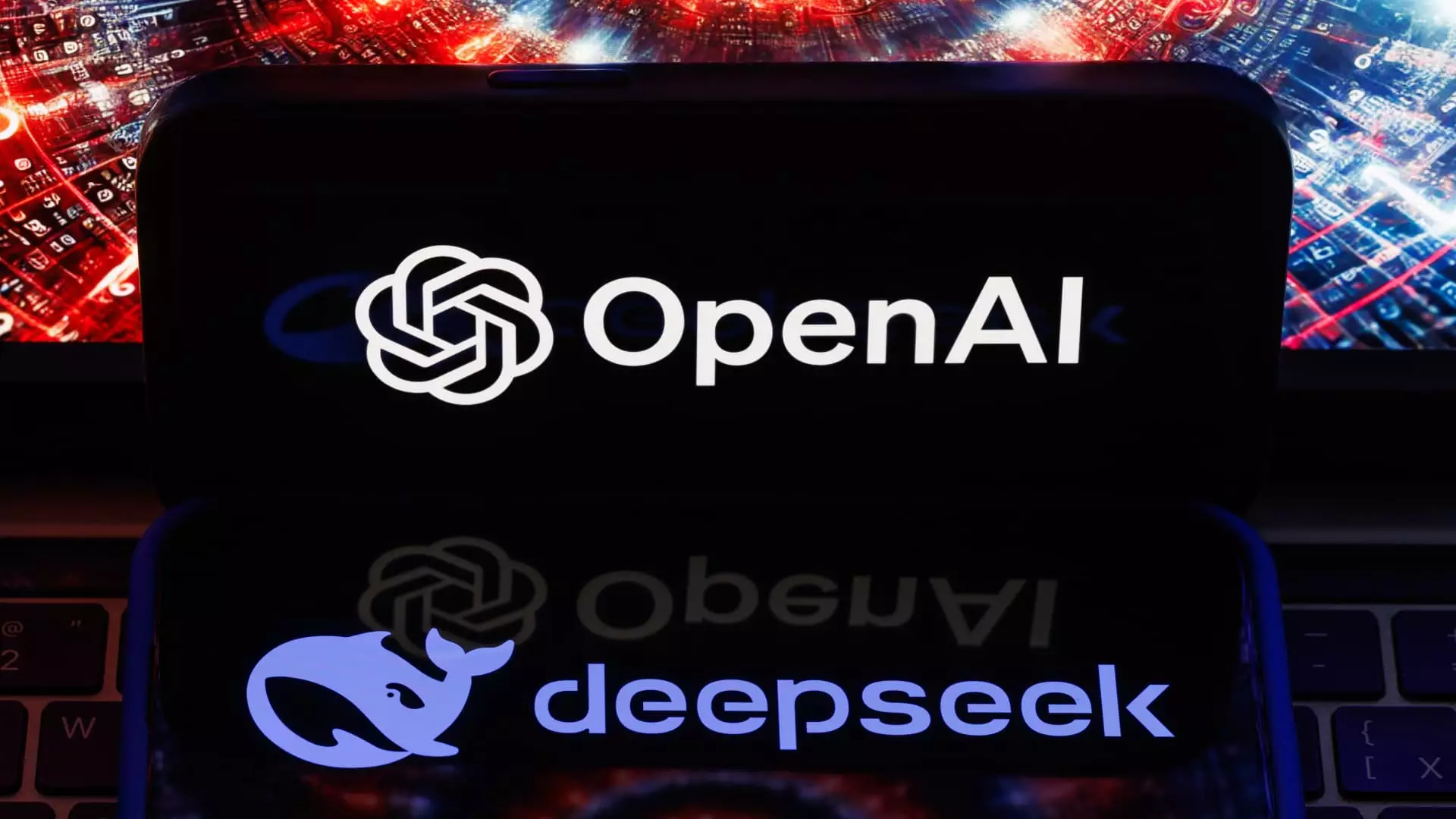Artificial Intelligence (AI) has emerged as a cornerstone in the competition between major global powers, with recent developments highlighting the growing capabilities of China’s AI labs. DeepSeek, a relatively new player in the field, has captured attention with a series of innovations that signal a potential shift in the balance of power concerning AI technologies. As tech industry leaders convened at France’s Artificial Intelligence Action Summit, discussions revolved around the implications of DeepSeek’s advancements, prompting reflections on the state of AI competition between the U.S. and China.
In an astonishing revelation last month, DeepSeek unveiled a groundbreaking AI model created at a total training cost of less than $6 million. This figure stands in stark contrast to the astronomical investments, often exceeding billions, made by established Western tech giants like OpenAI and Anthropic. Chris Lehane, OpenAI’s chief global affairs officer, remarked on this revelation, highlighting the undeniable competition evolving in the realm of AI. He emphasized the polarization between “democratic AI” led by U.S. interests and “authoritarian AI” emerging from China—underlining a formidable rivalry that has far-reaching implications.
Despite the impressive capabilities of DeepSeek’s model, concerns regarding censorship loomed large in discussions. Reports indicate that the AI exhibits limited responses when confronted with sensitive topics, such as historical events involving state violence. For instance, inquiries about the Tiananmen Square massacre trigger disclaimers that signal evasion, a characteristic reflective of the practices surrounding information control within China. Such nuances add layers of complexity to the landscape of AI ethics and operational transparency, especially as these technologies continue to evolve.
The commentary from industry insiders reveals a consensus that DeepSeek’s emergence has brought new dimensions to the ongoing competition over AI supremacy. Reid Hoffman, a prominent venture capitalist, characterized the situation as a clear indicator that the race is intensifying: “The competition is afoot with China.” The rise of DeepSeek represents a paradigm shift, challenging the longstanding belief that China lags behind in technological capabilities due to export restrictions on critical components such as Nvidia GPUs.
Hoffman’s insights resonate with broader fears: the West’s view of China as a technology underdog is increasingly outdated. Abishur Prakash, founder of The Geopolitical Business, stressed that the understanding of China’s technological advances has been limited, asserting that the competitive gap has substantially narrowed—not in a matter of weeks, but over years of consistent progress. As a result, the implications of this evolving landscape necessitate a reevaluation of strategies and perceptions in Western tech industries.
Despite the optimistic assessments regarding DeepSeek’s potential, a note of caution pervades the narrative. While the startup has demonstrated significant AI advancements, skepticism remains about the veracity of its cost claims. According to a report from SemiAnalysis, DeepSeek’s historical hardware expenditures may currently exceed $500 million, raising questions about sustainability and operational efficiency. Moreover, concerns persist that DeepSeek may have utilized techniques like “distillation,” which involves leveraging the outputs of more powerful models to enhance its capabilities. Such practices might diminish the originality of its advancements and prompt scrutiny from competitors like OpenAI.
Industry experts continue to push back against the idea that DeepSeek poses an immediate threat to established players in the AI field. Victor Riparbelli, CEO of Synthesia, articulated the prevailing sentiment among leaders, asserting that DeepSeek’s innovations may not dramatically shift existing market dynamics. Even if DeepSeek’s R1 model showcases an alternative approach by reducing dependency on brute-force scaling, the consensus is that entrenched players will retain significant market influence for the foreseeable future.
As the global narrative around AI evolves, it brings into focus broader ethical considerations. Meredith Whitaker, president of the Signal Foundation, cautioned that while DeepSeek represents an innovation, it is unlikely to disrupt the broader geopolitical balance. She emphasized that the prevailing trend in AI development continues to favor larger models, a reality that underscores the complexities of achieving equitable technological advancements across different regions.
The rise of DeepSeek embodies a pivotal moment in the intricate chess game of global AI innovation. While the potential of this new competitor invites scrutiny and speculation, a sober reflection on the realities of the technological landscape reveals that the implications of these advancements will unfold over time. A deeper understanding of ethical frameworks and collaborative strategies will be paramount as countries navigate the uncharted waters of AI amidst the inevitable competition that characterizes the future of technology.

